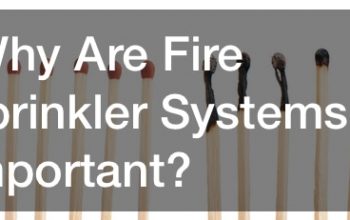What Modern Scanner Technology is Used For

Many business transactions and security measures today make good use of scanners of all sorts, from ID readers at a work site to drivers license card readers to ballot scanners and, of course, debit card and credit card scanners at retailers. Magnetic barcode readers are standard at retailers, and drivers license card readers can be useful for law enforcement officers who just pulled someone over. Many police officers and state troopers may also carry handheld ID card scanners, as well as having drivers license card readers and other scanners back at the station. How can these scanners help someone make a payment, clear a security checkpoint, or vote?
ID Verification
This is a major reason why drivers license card readers and handheld ID scanners are used: to verify who someone is. This is helpful for a law enforcement officer who just pulled over and/or arrested someone, or for workplace security or even for selling age-restricted items in retailers. A police officer can make good use of a drivers license card reader to verify the ID of someone they pulled over, and pull up that person’s vital information and their criminal history. This can really speed the process along.
But it’s not just the police who want to verify who someone is; workplace managers do, too. A new employee at a research and development lab, or a warehouse for example, will have their photo taken, and then a machine will print a plastic employee ID card for them. Whenever that employee arrives at their place of work, they can present that ID to a human security guard so they are cleared to enter. Also, these cards can help the employees unlock certain doors, which will have scanners on them or on the nearby wall. All of this can help prevent unauthorized intruders from getting into the workplace, since security guards will turn them away and these intruders can’t open locked doors. As a bonus, some workplaces might even have those ID cards double as clock-in and clock-out cards. Multiple employees can all present their IDs to a scanner to clock themselves in and out accurately, which can save some time and effort, since the system will log everything.
Purchases
Unsurprisingly, it did not take long for the world of finances to make good use of scanner tech. Some purchases are indeed still made with coins and cash, but for the most part, customers who are buying goods or services are going to present credit cards, debit cards, or even gift cards to scan. At a store, the customer may swipe their card in a scanner that reads the magnetic stripe in that card, and the customer can also hand over gift cards for the employee to use for extracting funds. Some debit and credit cards also have chips in them, which can add an extra layer of security.
So, when a card like this is scanned, the funds are immediately transferred from the holder’s bank account or credit card company, and to the retailer, making the purchase very fast. And of course, barcode scanners are used to register purchased items (and their price) in the system, so the retailer can demand the correct amount of money.
Lastly, using such cards makes it easier for the holder to log all their purchases and see what they spent money on, and when. If that person’s ID was stolen and a stranger is spending money on that card, the holder can contact the card’s issuer and have that card frozen until the problem is fixed.
Voting
Even voting makes use of scanner tech. At a voting site, voters may first present a form of ID, such as a driver’s license, to human staff. Those staff members will then scan those cards and check the photos with the holder’s own appearance, and clear them to vote. Then, the voter can either mark a ballot with a touch screen, or fill out a paper ballot. In the latter case, a voter will then feed that paper ballot into a free-standing ballot scanner. That machine can quickly scan many ballots per day and log all the information accurately, which is very convenient. All this contributes to the U.S.’s very low voter fraud rates across the nation.
